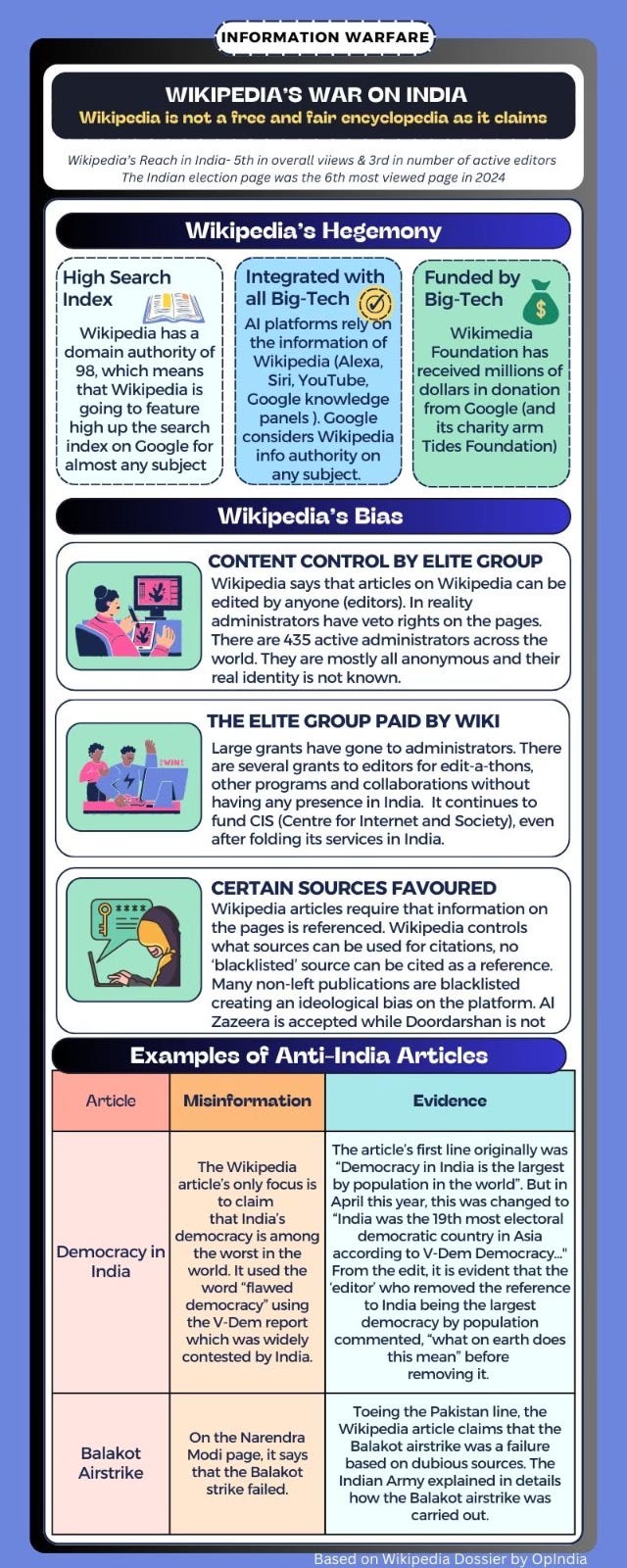Don’t have time to read an essay? Don’t feel like listening to a podcast? You can still stay up-to-date with important news at a glance, download the colourful Hindu Parenting Creatives (above) and share with friends & family.
Recently Larry Sanger, co-founder of Wikipedia, posted a tweet on X that read:
Children use Wikipedia as a source for school projects. What are they learning about India, especially about Hindus? Here’s what parents & children need to know about Wikipedia.
First, the questions:
Who actually writes the Wikipedia entries? Is it free, fair and open to all as they claim? Is it truly crowdsourced? How is it integrated with Big Tech? Who funds Wikipedia? How is search indexed, thereby controlling how frequently Wikipedia appears as a go-to source?
Wikipedia information is considered by many, including Google search, as the authority on any subject. What are the consequences for India and Hindus? There are many examples of anti-India articles in Wikipedia.
Recently, the Democratic Party Candidate for New York City Mayor, Zohran Mamdani, made a claim there are very few Muslims left in Gujarat. Many people including Hindus, believe these sort of baseless claims. Where are these ideas coming from? Is it a dangerous consequence of getting biased & false information from sources like Wikipedia?
Wikipedia and India is a story that needs to be known and shared widely. Encourage your child to see what Wikipedia says about events in India including the 2020 Delhi anti-Hindu riots, and check its veracity with other sources.
Read the complete report on Wikipedia and India (from Opinidia) here.
Share these posts and spread the ability to think critically, understand clearly and respond confidently!







"A thought-provoking and important point for discussion."
On articles related to Hinduism or Sanatana Dharma, it's crucial to recognize that many readers rely solely on Wikipedia without engaging with original scriptures like the Vedas, Upanishads, or the Bhagavad Gita. This can lead to oversimplified or even misinterpreted understandings of Sanatana Dharma. Given the philosophical depth and cultural richness of Hinduism, cross-referencing with traditional texts and interpretations by respected scholars is essential.
This trend is particularly concerning in India, where the younger generation often turns to quick summaries and online content. To preserve the essence of this ancient tradition, basic education about Hinduism should be introduced at the school level, along with encouragement to develop a habit of reading original texts and scholarly works. It would also be highly beneficial if aging scholars and spiritual teachers had their discourses and commentaries translated into various Indian languages for future generations to access and understand the true essence of Hindu Dharma.
More broadly, the reliance on platforms like Wikipedia, without cross-checking or verifying facts, is contributing to a decline in deep reading and critical thinking. Wikipedia articles are shaped by anonymous contributors, and their sources or perspectives are not always transparent or neutral. Without clear attribution, how can readers verify or challenge skewed narratives?
This concern extends beyond religion. From spiritual traditions to military history and contemporary politics, the problem of simplified or biased representations is growing. Even mainstream media, films, and podcasts sometimes misrepresent core aspects of epics like the Ramayana and Mahabharata.
Scholars have repeatedly voiced the need for awareness and discernment. It's time we encourage the younger generation to question, explore, and seek truth through deeper inquiry—not just rely on what's most accessible online.